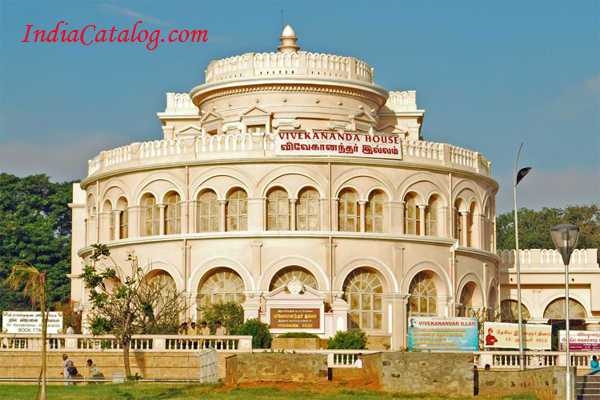ONGC, OIL will not be able to raise natural gas prices due to weak outlook
.jpg)
Mumbai: A weak outlook for natural gas prices will likely keep the price of domestically produced gas within the band of $5-6 per million metric British thermal units (mmBtu) for at least two years although the government’s new pricing formula allows for a revision every six months.
This means Oil and Natural Gas Corp. Ltd (ONGC) and Oil India Ltd (OIL) will not get to raise the gas price periodically under the formula unveiled in October, which prescribed a much lower price than the $8.4 per mmBtu approved by the previous government.
A third producer, Reliance Industries Ltd, and its partners in the D6 field of the Krishna-Godavari basin are locked in arbitration proceedings with the government over cost recovery from the D1 and D3 fields in the D6 block.
The gloomy outlook for gas prices may also deter foreign firms from taking part in the 10th round of bidding for the new exploration licensing policy (NELP X) expected to take place in the next fiscal, experts said.
Under the formula proposed by the Cabinet Committee on Economic Affairs (CCEA), the price applicable from the start of November was pegged at $5.61 per mmBtu, 33% higher than the earlier price of $4.2 per mmBtu.
That’s perhaps the last major increase in Indian gas prices for at least the next two years, experts say, given the muted outlook for all four benchmarks used to determine the price—the US Henry Hub, Alberta Hub of Canada, the National Balancing Point (NBP) of the UK and the gas price in Russia.
“We are factoring in a natural gas price of $5-6 per mmBtu for the next two years in India,” said Somshankar Sinha, director, Asia ex-Japan oil and gas research at Barclays Plc., over the phone from Hong Kong.
While it is difficult to estimate domestic prices in Russia as they appear regulated, prices of the other three benchmarks may rise only in the next five years with only limited gains over the next two years.
In fact, the Henry Hub price, which has a weightage of 41% in the new Indian gas pricing formula, is expected to fall.
“Our view is that Henry Hub in 2015 will be lower priced than in 2014, about 17% lower averaging $3.7 per mmBtu, but then adding some value in 2016,” said Trevor Sikorski, head of natural gas, coal and carbon, at Energy Aspects Ltd, a London-based energy research consultancy which gives forecasts on European and US energy prices.
On the UK benchmark of NBP, Sikorski said the forward prices for January 2015 are 23% lower year-on-year (y-o-y).
NBP has a weightage of 33% in the new Indian gas pricing formula, while the Russian gas price has 21% and Alberta Hub of Canada has 5% weightage.
Sinha also said the domestic price that will be set in April 2015 will be lower than the current price of $5.61 as the formula takes into account the average of last one year with a lag of one quarter, that is, January to December 2014. NBP prices have been much lower so far this year.
According to Bloomberg, from 1 January till 11 November, the price of Henry Hub has averaged $4.4 per mmBtu with a high of $7.92 per mmBtu recorded on 4 March and a low of $3.51 per mmBtu on 28 October. During the same time, the NBP average has been at £49 per therm or $7.77 per mmBtu and Canada’s Alberta Hub prices have averaged $3.6 per mmBtu.
It is the opacity of the Russian natural gas price which irks consultants. “Although the hike in gas prices in India is a welcome move, the change from the earlier formula in the indexation to Russia has the potential of making the price estimation less transparent as Russian prices are typically more difficult to track,” said Rahool Panandiker, partner and director at the Boston Consulting Group (BCG). “Russia does not have a market price for gas and as has been seen historically, political considerations play a role in keeping the price artificially low,” he added.
The weak outlook for gas prices is bad news for ONGC and OIL, which had been banking on a periodic rise in gas price to ensure proper returns on investments. “The price going forward could go up or down based on the formula, and based on the current trends, we do not expect any major change. A mere $1.41 increase is not good,” said an official from ONGC, on condition of anonymity.
As per estimates shared by ONGC chairman and managing director D.K. Sarraf, for every one dollar increase in gas price, ONGC’s revenue rises by Rs.4,000 crore and profit by almost Rs.2,350 crore.
BCG’s Panandiker said the gas pricing formula could be less appealing to investors— Indian and foreign.
“Global firms are unlikely to invest in India without the right price for their products, especially when options are available to invest globally in global sectors,” said Sanjeev Prasad, senior executive director and co-head (strategy), Kotak Securities Ltd.

.webp)
.webp)
.webp)
.webp)
.webp)
.webp)
.webp)
.webp)
.webp)
.webp)














